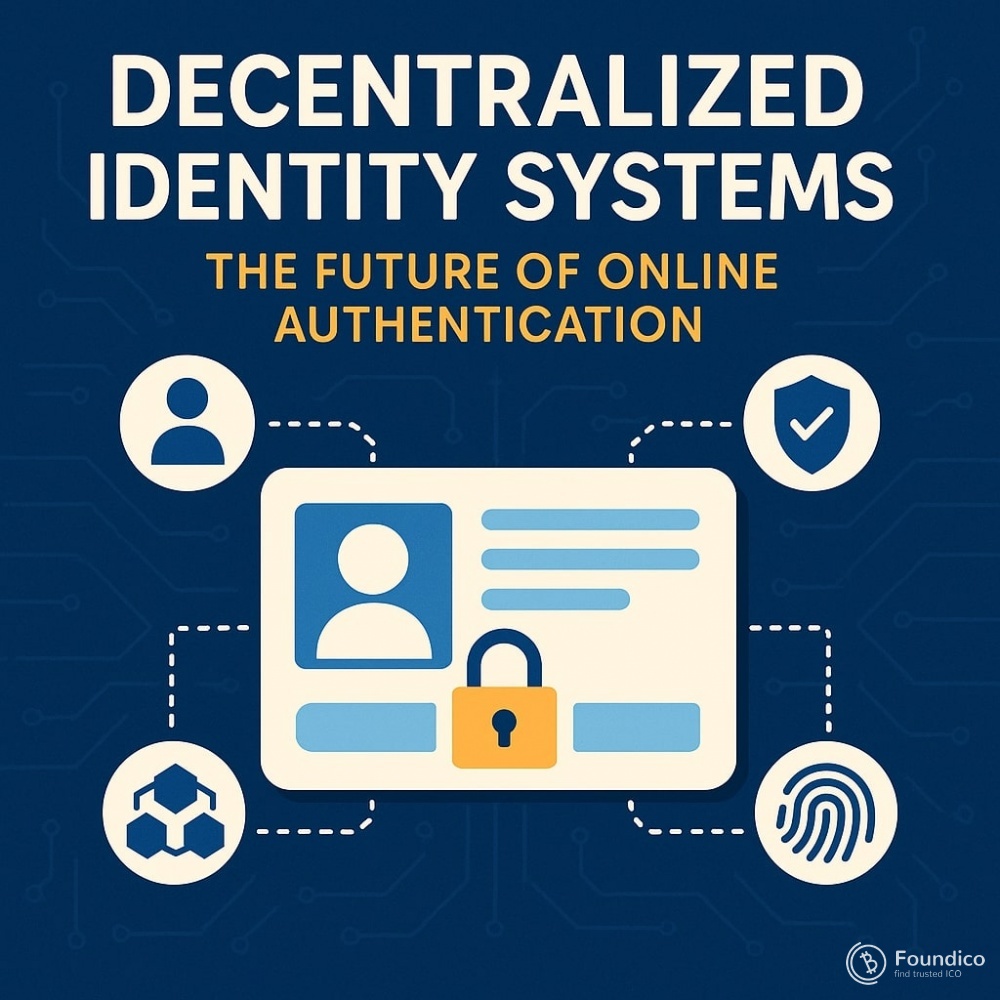Decentralized Identity Systems: The Future of Online Authentication

By Dr. Pooyan Ghamari, Swiss Economist and Visionary
In today’s hyper-connected world, identity verification and authentication have become foundational pillars for almost every online interaction. From accessing bank accounts to securing health records and even voting in elections, the question of “Who are you?” remains critical—and increasingly complex. Traditional centralized identity systems, long relied upon by governments and corporations, are showing clear signs of strain. Privacy concerns, data breaches, identity theft, and lack of user control have exposed their vulnerabilities. Against this backdrop, decentralized identity systems are emerging as a revolutionary solution—offering a new paradigm where individuals regain sovereignty over their digital identities.
The Problem with Centralized Identity Systems
Most current online authentication frameworks depend heavily on centralized authorities: banks, social media platforms, governments, or third-party identity providers. While these entities act as gatekeepers, their centralized nature creates several problems:
-
Single points of failure: Centralized databases are lucrative targets for hackers. High-profile breaches at companies like Equifax and Facebook have compromised millions of users’ personal information.
-
Privacy erosion: Users often have little control over how their data is stored, shared, or monetized. Consent is typically broad, and data misuse is rampant.
-
Fragmentation: Users maintain multiple identities and credentials across disparate platforms, leading to cumbersome user experiences and vulnerability.
-
Censorship and exclusion: Centralized authorities can restrict or revoke access arbitrarily, potentially silencing marginalized voices or denying services unfairly.
As the digital ecosystem grows more complex, the limitations of centralized identity are becoming untenable. We urgently need a system that is secure, private, user-controlled, interoperable, and resistant to censorship.
Enter Decentralized Identity Systems
Decentralized identity (often called self-sovereign identity or SSI) is an innovative approach to digital authentication where identity information is stored and managed by the user rather than a centralized entity. Built upon blockchain technology and cryptographic principles, these systems offer a radical shift in how identity is created, verified, and shared.
At its core, decentralized identity empowers users with:
-
Ownership: Individuals control their identity data and decide who can access it.
-
Portability: Identity credentials are interoperable across platforms and borders.
-
Privacy: Minimal data disclosure is required; users share only what is necessary, reducing exposure.
-
Security: Cryptographic proofs and decentralized ledgers reduce fraud and hacking risks.
How Decentralized Identity Works
Typically, a decentralized identity system uses three main components:
-
Decentralized Identifiers (DIDs): Unique, cryptographically verifiable identifiers that users generate themselves. Unlike traditional usernames or emails, DIDs are not tied to centralized registries.
-
Verifiable Credentials: Digital attestations issued by trusted organizations (such as universities, banks, or governments) that confirm attributes about a person—like a driver’s license or a university degree. These credentials can be selectively shared without exposing the entire document.
-
Blockchain or Distributed Ledger Technology (DLT): Acts as a tamper-proof public registry where DIDs and cryptographic proofs are anchored, enabling trust without a central authority.
When a user wants to prove an aspect of their identity, they present verifiable credentials directly to the service provider. The provider then validates these credentials by checking cryptographic proofs against the ledger, without needing to contact the issuer each time.
The Benefits Beyond Authentication
Decentralized identity systems have far-reaching implications beyond simple login:
-
Financial inclusion: Individuals without formal ID documents can obtain and prove identity securely, opening access to banking, credit, and social services.
-
Healthcare: Patients can control sensitive medical data, sharing it selectively with providers and ensuring privacy.
-
Government services: Voting, licensing, and welfare distribution can become more transparent, efficient, and fraud-resistant.
-
Cross-border interactions: Digital identities transcend national boundaries, facilitating global travel, employment, and commerce.
Challenges and the Road Ahead
Despite the promise, decentralized identity systems face several challenges:
-
User adoption: Educating the public and building intuitive tools is crucial. The technology must be easy to use for mass adoption.
-
Standardization: Interoperability requires common protocols and legal recognition across jurisdictions.
-
Privacy regulation compliance: Balancing decentralization with laws like GDPR remains complex.
-
Scalability: Blockchain networks must handle large volumes of authentication requests efficiently.
A Vision for the Future
As a Swiss economist and visionary, I see decentralized identity systems as not just a technological innovation but a societal shift toward empowering individuals. By placing control back into the hands of users, we can foster a more trustworthy, privacy-respecting internet. Governments, businesses, and civil society must collaborate to build open ecosystems that prioritize human dignity and digital rights.
Decentralized identity is the future of online authentication—not merely because it is technically superior but because it aligns with the fundamental values of freedom, privacy, and empowerment. The next decade will be critical as we transition from the centralized web of yesterday to a decentralized, user-centric digital world.
